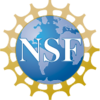2017 ePANDDA Hackathon
Welcome Info
Welcome! The ePANDDA project is connecting the Paleobiology Database, iDigPaleo, and iDigBio, to allow for seamless data discovery among the three databases. It is a new application programming interface (API), created as a collaboration by members of the Academy of Natural Sciences of Drexel University, the CU Boulder Museum of Natural History, Florida State University, George Mason University, and the Yale Peabody Museum of Natural History. ePANDDA (enhancing Paleontological and Neontological Data Discovery) is also available on GitHub.
Hackathon participants will beta-test performance of the ePANDDA application programming interface (API) in connecting these three resources, as well as use the API for their own research, outreach, and collections purposes. While some demo software tools have been created that display these connections, this hackathon will focus primarily on using the API, and, as such, programming experience is expected.
For questions about Philadelphia, The Academy, or any logistical matters, please contact Monet (Academy administrative coordinator) or Vincent (Drexel senior & Academy bioinformatics and collections assistant).
For questions about the hackathon itself, please contact Jocelyn or any of the other ePANDDA PIs.
- More detailed welcome packet is available here
- Reimbursement information and requests is available here
- Optional Collection Tour sign ups are now available here
SUGGESTED TOPICS: these are key issues identified by the ePANDDA programmers that participants can choose to focus on during the hackathon:
- Improve Institution/Collection name/code normalization and matching
- Improve Common Name generation for taxonomic index
- Create Index on collection/identified names and dates
- Create ElasticSearch mappings and queries
- New showcase for an endpoint (publications?) integrating ePandda data with another source/api
- Toolkit to combine endpoints (perhaps using publications endpoint to broaden search to lithostratigraphy or chronostratigraphy)
|
Agenda
All presentation and hackathon session will take place in the BEES classroom on the third floor unless otherwise noted.
Monday, September 18, 2017
| Registration at 19th St. entrance of Academy (8:30-9:15) | ||||
|---|---|---|---|---|
| Time | Title | Moderator(s) | ||
| 8:30-9:30 | Light Breakfast & Coffee in the Cafe | |||
| 9:30-9:45 | Hackathon Opening Remarks and Introductions | Jocelyn Sessa | ||
| 9:45-11:00 | Introduction to ePANDDA API followed by Q+A session | Seth Kauffman | ||
| 11:00-11:15 | Break | |||
| 11:15-12:00 | Group discussions around organization of hackathon | Jocelyn Sessa | ||
| 12:00 | Lunch (provided) - pick up in Darwin Room, feel free to eat outside | |||
| 1:30-4:30 | Hackathon begins | |||
| 4:30 - 5:15 | OPTIONAL: ANSP Collection Tour #1 (Sign up here) | |||
| 5:30 - 6:15 | OPTIONAL: ANSP Collection Tour #2 (Sign up here) | |||
| 6:30 | Dinner Reception in Dinosaur Hall Cash bar (accepts cash only!) will be available | |||
Tuesday, September 19, 2017
| Time | Title | Moderator(s) | ||
|---|---|---|---|---|
| 8:15-9:00 | Light Breakfast & Coffee in the Cafe | |||
| 9:00-9:15 | Q+A session covering progress and goals for hackathon | Jocelyn Sessa | ||
| 9:15-10:45 | Hackathon resumes | |||
| 10:45-11:00 | Break | |||
| 11:00-12:00 | Hackathon resumes | |||
| 12:00 | Lunch (provided) - pick up in Darwin Room, feel free to eat outside | |||
| 1:30-3:15 | Final hackathon session | |||
| 3:15-3:30 | Break | |||
| 3:30 - 4:30 | Demonstration of tools and code created Discussion of next steps for participants |
Jocelyn Sessa | ||
| 4:45 | Group photo in front of the panda diorama | |||
| 5:00-5:30 | OPTIONAL: Simon Goring and Jack Williams demo Earth Life Consortium API | |||
| 6:00-9:00 | OPTIONAL: Simon Goring (Earthcube) and Alex Thompson (iDigBio) will be presenting at the DataPhilly Meetup in Conshohocken, PA | |||
Code of Conduct
We, the ePANDDA principal investigators, hold that diversity is a fundamental to the exchange of scientific ideas. The ePANDDA community is one in which participants feel welcomed, respected, valued, and included. The ePANDDA hackathon will promote, provide, and expect a professional and respectful atmosphere and values a diversity of views and opinions.
All participants are expected to abide by this Code of Conduct.
All participants are to:
- be treated with respect and consideration.
- be considerate, collegial, and collaborative.
- communicate openly, with civil attitudes, critiquing ideas rather than individuals.
- avoid personal attacks directed toward other participants, Academy of Natural Sciences and Drexel staff, and service providers.
- alert Academy of Natural Sciences security personnel by calling 215-299-1019 or ePANDDA leadership if you notice someone in distress, or perceive a potentially dangerous situation, or witness a dangerous situation.
Anyone requested to stop unacceptable behavior is expected to immediately cease and desist. Unacceptable Behavior includes but is not limited to:
- harassment, intimidation, or discrimination.
- physical or verbal abuse of any participant, Academy of Natural Sciences and Drexel staff, service provider, or other attendee.
- disruption of presentations.
- audio and video recording, or taking images of an individual’s presentation without the presenters’ permission, is expressly forbidden.
- verbal comments related to gender, sexual orientation, disability, physical appearance, body size, race, religion, or national origin.
- inappropriate use of nudity and/or sexual images in public spaces or in presentations.
- intentional, uninvited physical contact of any form.
- threats (implied or real) of, physical, professional or financial harm.
- stalking of participants or Academy of Natural Sciences and Drexel staff and service providers.
Consequences of Unacceptable Behavior
Academy of Natural Sciences and Drexel staff, leadership, security, or law enforcement personnel shall take action(s) deemed necessary and appropriate. Actions may include immediate removal from the hackathon without warning or refund.
Procedures to be followed in an emergency situation:
- Evaluate the situation and if appropriate call 911 or activate a local fire alarm.
- Do not endanger yourself. Follow the directions of building security, law enforcement, fire department, military personnel, or Academy of Natural Sciences staff.
- Initiate first aid if appropriate, so trained and necessary.
- Be as observant as possible in order to communicate to emergency staff.
This statement was crafted based on the Paleontological Society’s inclusivity statement and the Geological Society of America’s Events Code of Conduct.
Venue
Founded in 1812 the Academy is a leading natural history museum dedicated to advancing research, education, and public engagement in biodiversity and environmental science. Our collections boasts more than 18 million specimens and archival treasures. Many of the specimen pre-date the founding of the Academy and reflect the work of famous naturalists and scientist, including Thomas Jefferson, John James Audubon, Meriwether Lewis, and William Clark. Our “library of life” records the extraordinary diversity of life on Earth and preserves a long-term record of environmental change.
- Academy of Natural Sciences of Drexel University is located at the corner of 19th Street and Benjamin Franklin Parkway facing Logan Circle. We have two entrances for your convenience, however event check-in as well as breakfast is located at the 19th Street Entrance.
- Floor Plan of Academy
Philadelphia is a very walkable, bikeable, and public transportation friendly city. Every year Philly is rated one of the best walking cities in the country. You can also choose to Lyft or Uber to get to any destination you choose within the city. For more information on getting around Philadelphia, please visit http://www.visitphilly.com/getting-around/
Travel and Lodging
Costs are supported through ePANDDA funding from NSF. The hackathon will be two full days in length, both 18 and 19 September. Travel should be planned for Sunday (17th) and Wednesday (20th).
Participants are responsible for booking your own airfare/ground transport (to be reimbursed after the workshop). When booking airline travel, be sure that:
- you arrive and depart from the Philadelphia International Airport (PHL).
- your flight arrival and departure times allow you to participate ALL DAY on Monday September 18th and until 5pm ET on Tuesday September 19th.
- you book only economy class, as economy is the only class that can be reimbursed.
- you pay with a credit card, as frequent flyer miles can not be reimbursed.
- all receipts show proof of payment (i.e. last four digits of credit card shown on receipt).
Participants can make reservations (hotel or Airbnb) on your own, and submit for reimbursement following the hackathon, or, we have reserved a block of rooms at nearby hotels, which will be paid directly by ePANDDA. If you want one of these rooms, please fill out the form here by August 31.
Wireless Connectivity
A sponsored guest user id and password will be assigned for the duration of the hackathon and shared by all participants, which will extend the function of the guest network. These credentials are shared, and cannot be published on the web. They will be emailed just prior to the event, and distributed on-site.
Collection Tours
Optional tours will be offered before dinner on the first day for certain collections. Make sure to sign up using the google form here
- Ichthyology collections with Mariangeles Arce, Ph.D. Interim Collections Manager (only the first shift, from 4:30 to 5:15).
- Ornithology collections with Dan Thomas, Collections Manager (only the first shift, from 4:30 to 5:15).
- Botany collections with Jordan K. Teisher, Ph.D. Collections Manager, and Rick McCourt, Ph.D. Curator.
- Malacology collections with Gary Rosenberg, Ph.D. Curator.
Participants
| List of names and affiliations for participants | ||||
|---|---|---|---|---|
| Name | Affiliation | |||
| Simon Goring | University of Wisconsin - Madison | |||
| Jeff Bryant | George Mason University | |||
| Chris Norris | Yale Peabody Museum of Natural History | |||
| Susan Butts | Yale Peabody Museum of Natural History | |||
| Holly Little | Smithsonian National Museum of Natural History | |||
| Talia Karim | University of Colorado Natural History Museum | |||
| Kevin Love | University of Florida/Florida Museum of Natural History/iDigBio | |||
| Michael Benowitz | Whirl-i-Gig, Inc. | |||
| Steve Dilliplane | Academy of Natural Sciences of Drexel University | |||
| Mark Uhen | George Mason University | |||
| Julian Jenkins | George Mason University | |||
| Shane Loeffler | University of Minnesota | |||
| Andy Melien | Yale Peabody Museum of Natural History | |||
| Noel Heim | Stanford University | |||
| Jack Williams | University of Wisconsin-Madison | |||
| Alexander Thompson | iDigBio | |||
| Jon Lauters | ePANDDA | |||
| Gil Nelson | Florida State University/iDigBio | |||
| Seth Kaufman | Whirl-i-Gig, Inc. | |||
| Julie Winchester | Duke University | |||
| Jonathan Marcot | University of California Los Angeles | |||
| Vincent O'Leary | Drexel University | |||
| Jocelyn Sessa | Academy of Natural Sciences of Drexel University | |||
| Judi Sclafani | Penn State | |||
| Lindsay Walker | Natural History Museum of Los Angeles County | |||
| Adam Mansur | Smithsonian Institution, Department of Mineral Sciences | |||
| Gary Rosenberg | Academy of Natural Sciences of Drexel University | |||
| Mariangeles Arce H. | Academy of Natural Sciences of Drexel University | |||
| Rick McCourt | Academy of Natural Sciences of Drexel University | |||
| Massimo Marsella | Drexel University | |||
| Emily Carey | Drexel University | |||
ePANDDA is funded by National Science Foundation EarthCube IA
Documents, Resources, and Tools
Notes from the wrap up and presentations at the end of day 2.
ePANDDA developer plan of action based upon hackathon experience/feedback.
Save the Date Second Annual Digital Data in Biodiversity Research Conference 4-6 June 2018. The 2018 conference will again encompass the uses of digitized data across all biodiversity disciplines, with special emphasis on digitized specimen data and the potential for “big data” analytics in organismal biology.



